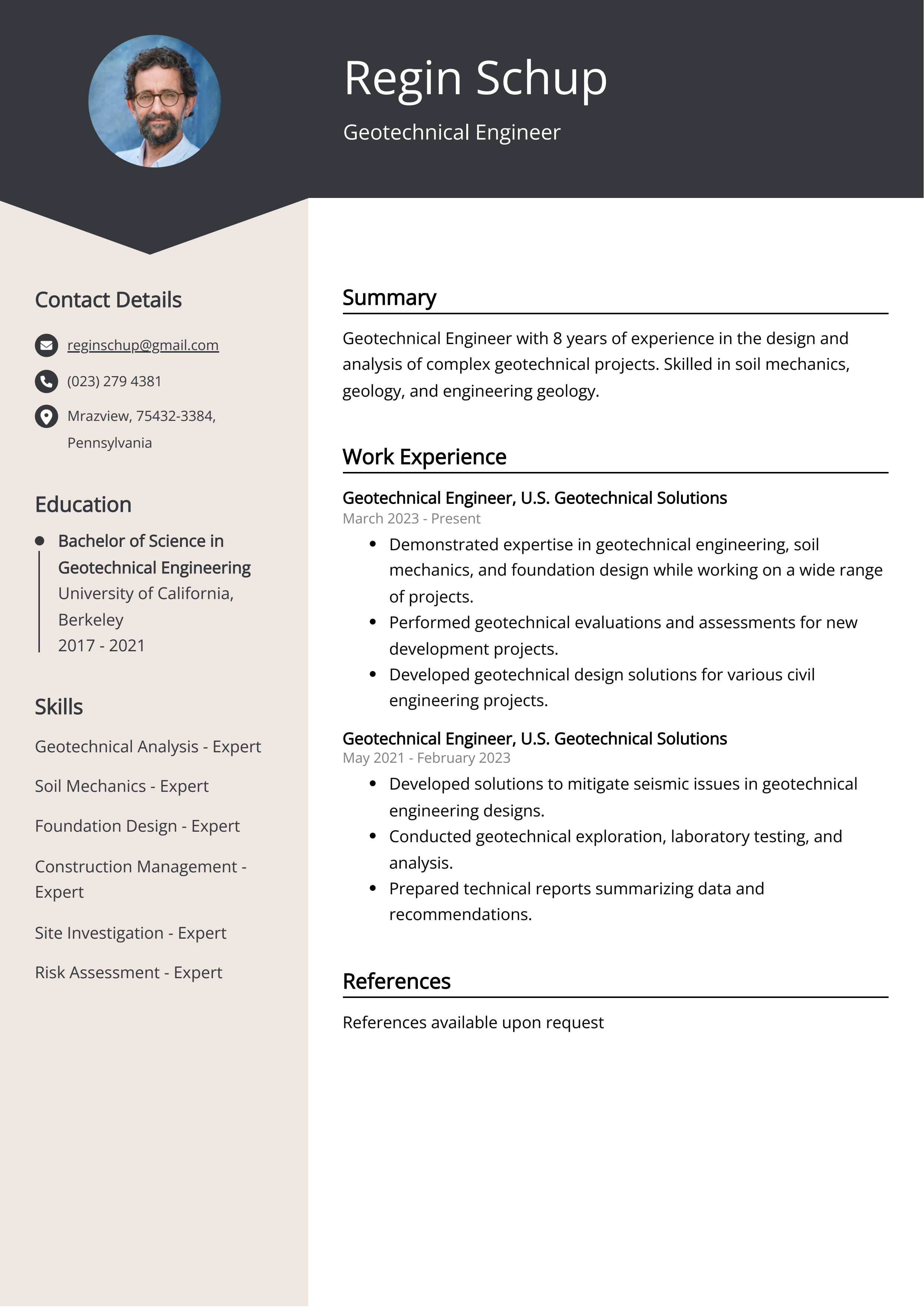The Best Guide To Geotheta
The Best Guide To Geotheta
Blog Article
What Does Geotheta Do?
Table of ContentsGeotheta Can Be Fun For AnyoneThe Best Guide To GeothetaTop Guidelines Of GeothetaGeotheta Fundamentals ExplainedThe Ultimate Guide To Geotheta

They perform website investigations, gather examples, do research laboratory tests, and assess data to review the viability of the ground for building jobs - Geotechnical Engineers. Based upon their searchings for, geotechnical designers give suggestions for foundation layout, slope stability, keeping frameworks, and mitigation of geotechnical hazards. They work together with other specialists, such as engineers, architectural designers, and construction teams, to ensure that geotechnical factors to consider are integrated right into the total job design and implementation
By examining the habits and residential or commercial properties of dirt and rock, they can determine possible geotechnical dangers such as landslides, soil settlement, or slope instability. Their know-how helps protect against failures or mishaps that could threaten lives and residential property. Below are some detailed obligations and responsibilities of a geotechnical designer: Site Investigation: Geotechnical designers conduct website examinations to gather information on subsurface problems.
They translate the information to comprehend the residential properties and behavior of the soil and rock, including their strength, leaks in the structure, compaction qualities, and groundwater conditions. Geotechnical Evaluation and Layout: Geotechnical engineers analyze the information collected during site examinations to examine the stability and viability of the site for construction jobs. They perform geotechnical estimations and modeling to assess aspects such as birthing ability, settlement, slope security, side earth pressures, and groundwater circulation.
An Unbiased View of Geotheta
Foundation Style: Geotechnical engineers play a critical function in making structures that can securely sustain the designated framework. They analyze the dirt problems and load needs to figure out the suitable structure kind, such as superficial structures (e.g., footings), deep foundations (e.g (https://slides.com/geotheta)., piles), or specialized techniques like soil improvement. They take into consideration variables such as negotiation restrictions, bearing ability, and soil-structure communication to develop optimum structure layouts
They review construction strategies, screen site activities, and perform field inspections to validate that the layout recommendations are complied with. If unforeseen geotechnical concerns develop, they assess the situation and offer recommendations for removal or changes to the layout. Threat Assessment and Mitigation: Geotechnical engineers evaluate geotechnical hazards and threats associated with the task website, such as landslides, liquefaction, or soil disintegration.

Collaboration and Interaction: Geotechnical designers work carefully with other specialists involved in a project, such as engineers, structural designers, and construction teams. Efficient interaction and cooperation are important to incorporate geotechnical considerations right into the general job layout and building and construction procedure. Geotechnical engineers provide technical proficiency, answer queries, and ensure that geotechnical needs are satisfied.
Geotheta for Dummies
Right here are some kinds of geotechnical designers: Foundation Engineer: Structure designers concentrate on designing and assessing foundations for frameworks. They assess the dirt conditions, load requirements, and website features to establish one of the most proper foundation type and design, such as superficial structures, deep structures, or specialized techniques like pile foundations.
They review the aspects affecting slope security, such as soil homes, groundwater problems, and slope geometry, and develop approaches to stop slope failings and minimize risks. Earthquake Engineer: Earthquake engineers specialize in assessing and designing structures to hold up against seismic pressures. They assess the seismic danger of a site, assess dirt liquefaction potential, and create seismic layout criteria to ensure the security and resilience of structures during quakes.
They execute field screening, gather samples, and assess the accumulated information to define the soil residential properties, geologic developments, and groundwater conditions at a website. Geotechnical Instrumentation Designer: Geotechnical instrumentation designers concentrate on monitoring and determining the actions of dirt, rock, and frameworks. They mount and maintain instrumentation systems that monitor factors such as dirt negotiation, groundwater levels, incline activities, and architectural variations to examine efficiency and give early warnings of prospective concerns.
Not known Facts About Geotheta
They carry out tests such as triaxial tests, debt consolidation tests, direct shear examinations, and leaks in the structure examinations to gather information for geotechnical analysis and design. Geosynthetics Designer: Geosynthetics designers specialize in the layout and application of geosynthetic materials, such as geotextiles, geogrids, and geomembranes. They use these products to boost dirt stability, enhance slopes, give drainage remedies, and control disintegration.
They have a tendency to be investigative individuals, which means they're intellectual, introspective, and inquisitive. They are curious, systematic, logical, logical, and logical. A few of them are additionally social, suggesting try this website they're kind, generous, participating, individual, caring, valuable, empathetic, sensible, and friendly. Does this seem like you? Take our complimentary profession examination to learn if geotechnical engineer is one of your leading job matches.
In the office atmosphere, geotechnical designers utilize specialized software application tools to perform computations, develop styles, and assess information. They prepare reports, testimonial task specifications, interact with clients and employee, and coordinate task activities. The office setup provides a conducive setting for research, analysis, and partnership with other specialists included in the project.
Some Ideas on Geotheta You Need To Know
They frequently go to project sites to conduct website examinations, examine geotechnical conditions, and collect data for analysis. These check outs involve taking a trip to different places, occasionally in remote or difficult surfaces. Geotechnical designers might carry out dirt sampling, conduct tests, and display building and construction activities to make sure that the geotechnical facets of the job are being implemented appropriately.
Geotechnical engineers also function in specialized geotechnical laboratories. Geotechnical laboratory engineers work thoroughly in these atmospheres, taking care of screening tools, running instruments, and tape-recording information.
Report this page